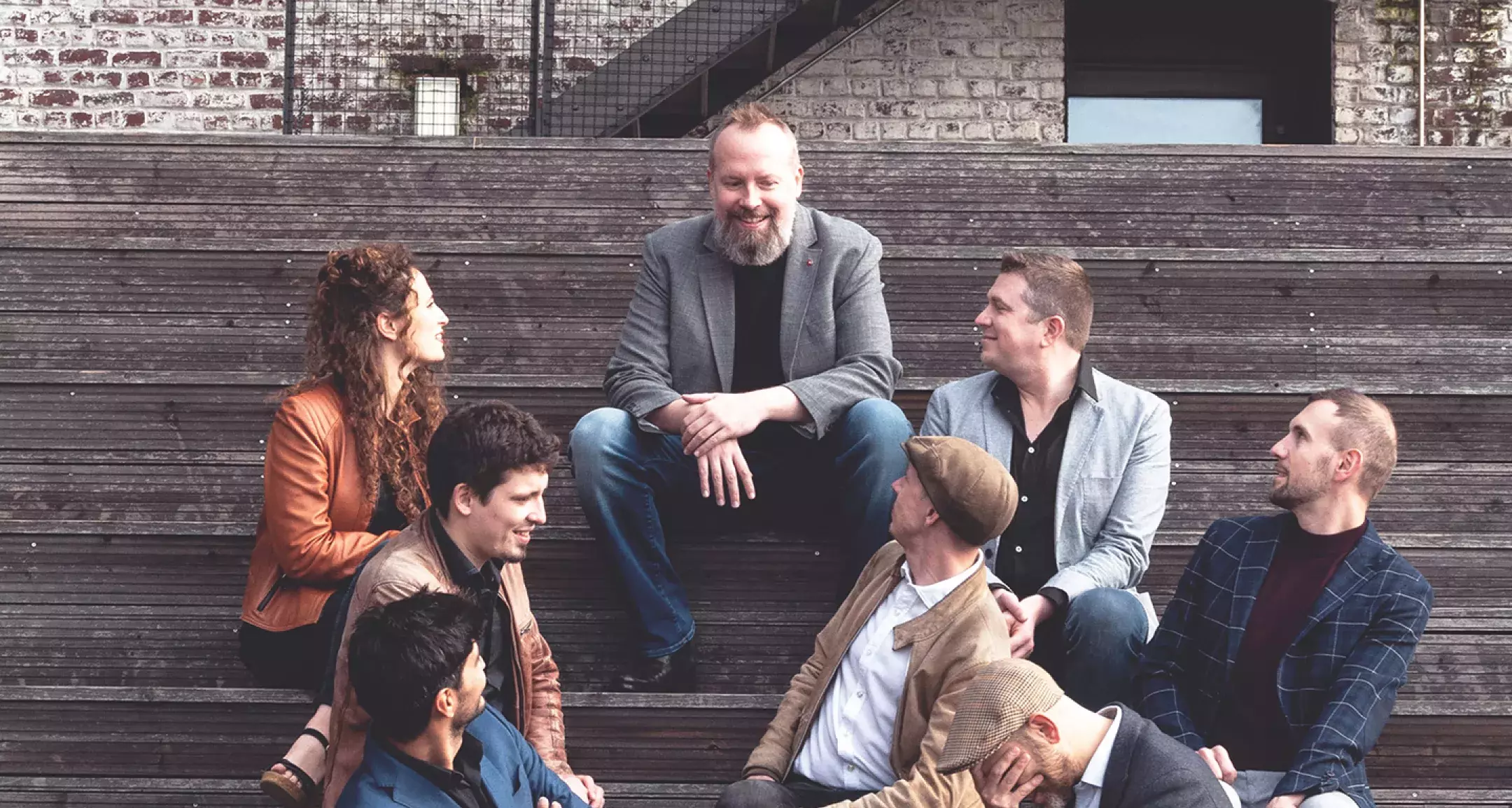HAPPY BIRTHDAY PIAZZOLLA!

extra information
Astor Piazzolla: father of the modern tango
Together with Pablo Neruda, Isabel Allende and Gabriel García Márquez, Astor Piazzolla is one of South America’s most significant cultural figures. He breathed new life into the tango and elevated it to an art form. Adiós Nonino, Oblivion and Libertango are now classics. 2021 marks the hundredth anniversary of his birth.
Wunderkind on the bandoneon
Astor Piazzolla was born in Argentina, but emigrated to New York at the age of five. He received a bandoneon from his father at the age of nine and it soon became apparent that he had an affinity with the instrument. At the same time, he became fascinated by jazz, but the bandoneon did not seem to fit easily into this genre. In 1937, he returned to his homeland and settled in Buenos Aires. He soon joined a tango orchestra and started to arrange music for this ensemble.
Eureka! with Nadia Boulanger
Piazzolla had caught tango fever, and started to compose his own work and set up his own tango orchestras. His popularity quickly reached its zenith, but at the same time he became increasingly interested in classical music. When he won an award for his composition Buenos Aires (1951), he was given the opportunity to study under Nadia Boulanger, who he considered to be the greatest music teacher at that time. Piazzolla was somewhat insecure about his background, and at first did not want to admit that he was not classically trained. In fact, his Mémoires reveal that this was not at all necessary. What is more, Boulanger actually discouraged him from abandoning the tango.
Nadia Boulanger: "You say you are not a pianist. So which instrument do you play?" I did not want to tell her I was a bandoneon player, because I thought: "She will throw me from the fourth floor." Eventually, I confessed, and she asked me to play a few bars of one of my tangos. She suddenly opened her eyes, grabbed my hand and said to me: "You idiot; that is Piazzolla!"
Astor Piazzolla: A Memoir
The Tango Nuevo
On Boulanger’s recommendation, Piazzolla started to combine tango with such techniques as counterpoint, instrumentation and melodic styles that he learned from her. This new approach became incredibly popular and was given the name tango nuevo, which was not always appreciated by tango traditionalists. Piazzolla did not let that bother him, and continued to compose industriously. Classical musicians did appreciate his style and he composed a Cello Concerto for Rostropovich.
Two times Piazzolla
To celebrate Astor Piazzolla’s hundredth birthday, SONICO and the Orcquesta Tanguedia pay homage to the Argentine composer’s work. SONICO previews their latest album at Klarafestival. Piazzolla – Rovira: The Edge of Tango reconstructs music by the first avant-garde tango group: the mythical Octeto Buenos Aires which Piazzolla assembled following his studies in Paris. The ensemble also plays work by Eduardo Rovira, another significant figure in the evolution of the tango nuevo.
The Orcquesta Tanguedia is also passionate about Piazzolla’s work. This ensemble was founded by the Belgian accordionist, bandoneonist and composer Gwen Cresens. Piazzolla has been an endless source of inspiration to him for over thirty years; in particular, the way in which he managed to blend the tango with classical music, jazz and klezmer. The Orcquesta Tanguedia browsed through the quintet repertoire and selected some classics that reveal Piazzolla’s colour palette.
full programme sonico
Eduardo Rovira and the Octeto Le Plata
astor piazzolla (1921-1992)
Nonino Astor (arr. E. Rovira)
astor piazzolla (1921-1992)
Tango del Angel (arr. E. Rovira)
astor piazzolla (1921-1992)
Melancólico Buenos Aires (arr. E. Rovira)
eduardo rovira (1925-1980)
Sinfonia
eduardo rovira (1925-1980)
Monroe 3307
Astor Piazzolla and the Octeto Buenos Airos
astor piazzolla (1921-1992)
Marrón y Azul
julián plaza (1928-2003)
Taconeando (arr. Astor Piazzolla)
juan carlos cobián (1888-1953)
Los Mareados (arr. Astor Piazzolla)
josé pascual (1910-1978)
Arrabal (arr. Astor Piazzolla)
horacio salgán (1916-2016)
A Fuego Lento (arr. Astor Piazzolla)
full programme orquesta tanguedia
astor piazzolla (1921-1992)
Concierto para Quintet
astor piazzolla (1921-1992)
Cuatro Estaciones Porteñas
- Verano Porteño (Buenos Aires Summer)
- Invierno Porteño (Buenos Aires Winter)
- Primavera Porteña (Buenos Aires Spring)
- Otoño Porteño (Buenos Aires Autumn)
astor piazzolla (1921-1992)
Decarissimo
astor piazzolla (1921-1992)
Escualo